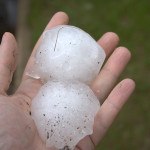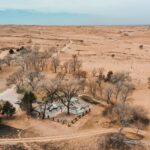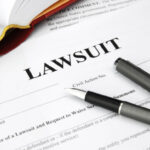The head of a federal safety board said snow-like accumulations of industrial dust were reported at a Georgia sugar refinery that exploded last month and that simple housekeeping probably would have prevented the deadly blast.
In congressional testimony, Chemical Safety Board executive William Wright said the agency is still investigating the Feb. 7 accident that killed 12 people at the Port Wentworth plant and injured dozens more.
Wright, in remarks to be delivered at a hearing, said the explosion fit a pattern of similar incidents in recent years and was preventable.
Preliminary findings show that the company had no program for reducing risks from industrial dust, and employees received little or no training on the hazard, he said. Witnesses have reported that dust accumulated on flat surfaces throughout the plant such as joists and pipes. When triggered, the dust can ignite like gunpowder and probably served as fuel in a series of explosions that destroyed parts of the plant.
“These tragedies are preventable,” Wright said, citing existing voluntary standards from the National Fire Protection Association. “Without accumulated fuel, the most catastrophic type of dust explosion cannot and will not occur.”
The Chemical Safety Board investigates industrial accidents for the federal government and makes safety recommendations to industry groups and federal regulators.
In a 2006 study, the agency identified 281 industrial dust fires and explosions between 1980 and 2005 that caused 119 deaths and more than 718 injuries.
The board recommended that the Occupational Safety and Health Administration enact regulations to prevent future accidents. But the agency has not acted on those recommendations, even though it implemented similar standards for the grain industry after a series of explosions in the 1980s.
House Education and Labor Committee Chairman George Miller, D-Calif., and Rep. John Barrow, D-Ga., have proposed legislation that would force OSHA to issue new regulations.
Miller said OSHA’s failure to act on dust hazards follows a pattern of neglect under the Bush administration, which he said has chosen to rely on voluntary compliance and industry “alliances.”
“What’s particularly troubling about the Imperial Sugar explosion is that … the U.S. Occupational Safety and Health Administration had been specifically warned about dust hazards and provided with guidance on how to address them,” Miller said in written testimony.
Was this article valuable?
Here are more articles you may enjoy.

 Dog-Related Injury Claim Payouts Hit $1.12B in 2023, Report Shows
Dog-Related Injury Claim Payouts Hit $1.12B in 2023, Report Shows  CoreLogic Report Probes Evolving Severe Convective Storm Risk Landscape
CoreLogic Report Probes Evolving Severe Convective Storm Risk Landscape  Texas Among Several States Facing New Fire Risks: Weather Watch
Texas Among Several States Facing New Fire Risks: Weather Watch  Oregon Schools Sued for $9M After Young Girl Allegedly Raped
Oregon Schools Sued for $9M After Young Girl Allegedly Raped 